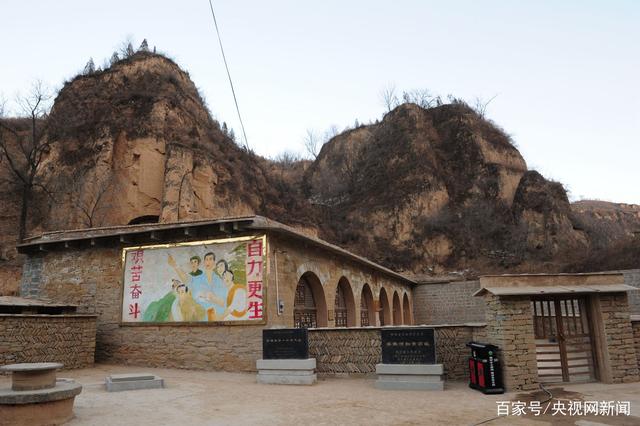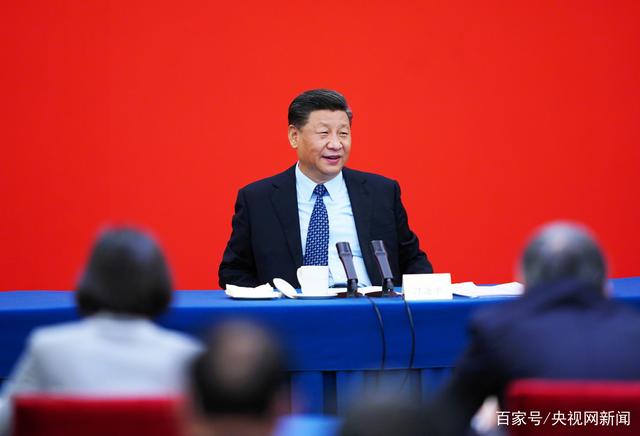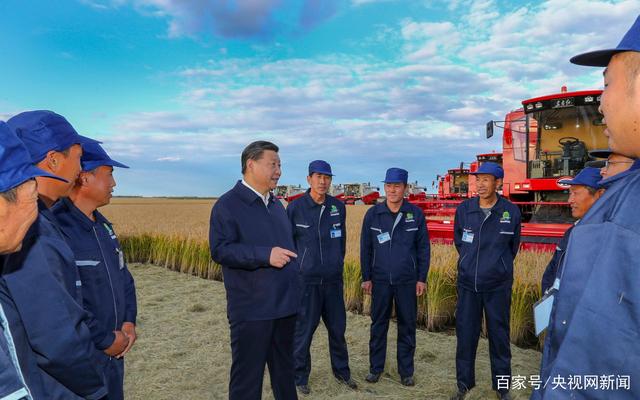
Liangjiahe village. Photo: CCTV
In early 1969, Xi Jinping and other educated youth left Beijing for the village of Liangjiahe in the Shaanxi Province.
They tilled the soil, picked up dung, cultivated, hoed, dammed, harvested and carried grain.
Xi lived and worked with farmers for seven years in Liangjiahe.
At that time the shoulder-pole was a common tool of labor.
The work was tough, and newcomers did not know how to use the shoulder pole.
Xi at first hurt his shoulders as he often carried water for cooking.
In spring, he shouldered cow dung to the mountain fields, and carried wheat after harvest in summer. He never goofed off.
During those years' experience, Xi saw firsthand the tough life of the poor farmers and developed a deep association with them.

President Xi Jinping visits national political advisors from the economic sector attending a joint panel discussion at the third session of the 13th National Committee of the Chinese People's Political Consultative Conference in Beijing, capital of China, May 23, 2020. Photo: CCTV
During the 2020 two sessions, President Xi recalled his years as an educated youth and exchanged ideas with economic experts at the third session of the 13th Chinese People's Political Consultative Conference (CPPCC) National Committee.
Xi recalled at the session that one time when he was hungry, he asked the people around him what made a happy life.
He said that first came a few wishes: "a full stomach," "eat pure rice and corn meal” or "eat fine grain whenever we want, and eat meat often."
Xi asked the residents to think more about what constituted a happier future life.
A "golden shoulder-pole" would be handy, the farmers joked.
Xi has since interpreted the "golden shoulder-pole" to mean agricultural modernization with Chinese characteristics.
From the local governments to the Central People's Government, Xi Jinping has always been committed to leading farmers to strive for a better life, constantly exploring the path of agricultural modernization with Chinese characteristics. He advocates "applying science and technology to agriculture," "accelerating the establishment of a modern agricultural industry system," and "promoting the modernization of agriculture and rural areas."

President Xi Jinping talks with workers at Qixing farm, northeast China's Heilongjiang Province, Sept. 25, 2018. Photo: CCTV
When Xi visits the countryside, he asks about local industry, science and technology that is relevant to farmers.
When visiting a village in Jiangsu Province, Xi talked with the villagers about strawberry marketing channels.
From a live broadcast platform in a Village Training Center of Zhashui county, Shaanxi Province, Xi praised Zhashui fungus, the local specialty.
E-commerce helps people rid themselves of extreme poverty and promote revitalization of the village, he said.
Nowadays, China is developing Xi's "golden shoulder-pole" through smart agriculture, modern agricultural technology, big data, cloud computing and other advanced technologies.
At one click, a mobile phone irrigates the soil and fertilizes the ground. A solar insecticidal lamp stands guard on a ridge. Not a single farmer can be seen, only machinery, across vast swathes of wheat fields.
(Compiled by Jia Lijuan and Sun Tianren)


